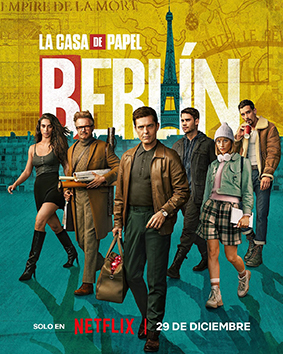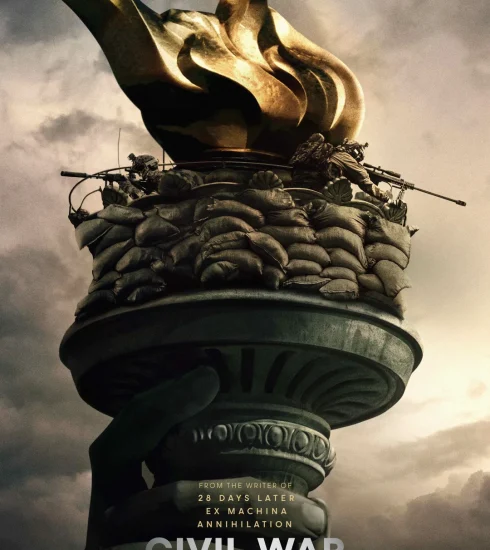Movie Review: Napoleon
When it comes to historical epics, Ridley Scott has a checkered past, and Napoleon, his biopic of the early-19th century ruler of France, doesn’t
change that. An uneven and historically questionable examination of the man behind the legend, the movie attempts to wed spectacle with drama, interweaving impeccably recreated battle sequences with the soap opera-ish romantic angst of the marriage of the title character (Joaquin Phoenix) with Empress Josephine (Vanessa Kirby). Although the film has its share of high points, there are more misses than hits, resulting in a 2 ½ hour experience that provokes frustration at a missed opportunity.
This portrait of Napoleon is more muddled than nuanced. Although Joaquin Phoenix, whose understated performance is a study in monotony, is miscast as the historical figure, he’s probably exactly what Scott wanted for this particular interpretation. Indeed, Scott’s agenda for the film seems to be to tear down any greatness surrounding the Emperor and re-cast him as a borderline-autistic lacking in charisma and social skills whose obsession with Josephine overshadows his military greatness. Indeed, based on what makes it to the screen, there’s little evidence that Napoleon was more than a middling general with a few impressive wins to go along with some catastrophic losses.
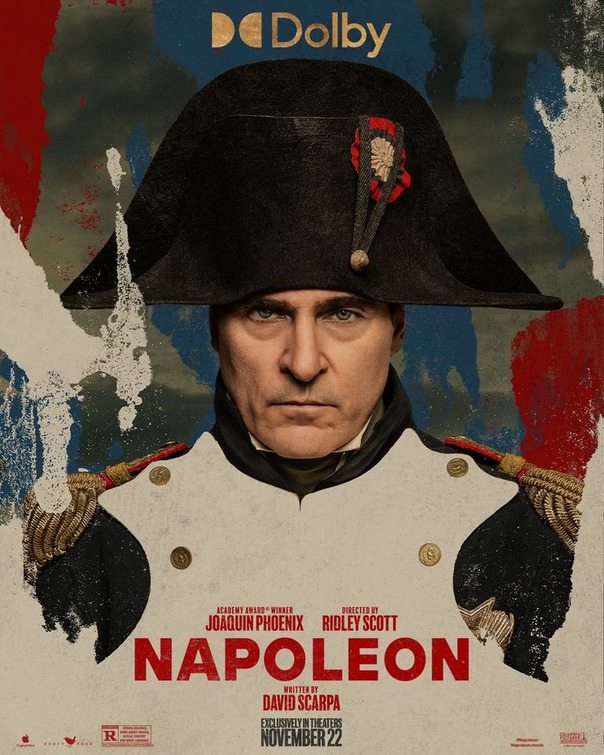
One has cause to wonder whether Napoleon has fallen victim to the same forces that hamstrung Scott’s 2005 masterpiece, Kingdom of Heaven. Forced to shave 45 minutes off the running time to make it more palatable for theatrical distribution, Scott transformed a great film into a confused and messy affair. Only when the director’s edition was released the following year were audiences able to appreciate the fullness of his vision.
Scott has already confirmed that a 4 ½ hour cut of Napoleon exists and is planned for release to Apple TV+. It’s possible that the addition of two hours of footage may solve some of the current movie’s narrative shortcomings. Napoleon follows the rise and fall of the title character. Following a brief prologue depicting the 1793 beheading of Marie Antoinette, the focus shifts to Napoleon’s first battlefield victory at the Siege of Toulon (the film’s undisputed highlight – the first half-hour is stunning). It then bogs down, tracing the political, personal, and military achievements of the general-turned-Emperor over the next 25 years, including his failed Russian campaign in 1812 and his ultimate defeat at Waterloo in 1815. Much attention is paid to his relationship with his first wife, Josephine, whom he eventually divorces because she cannot provide him with an heir.
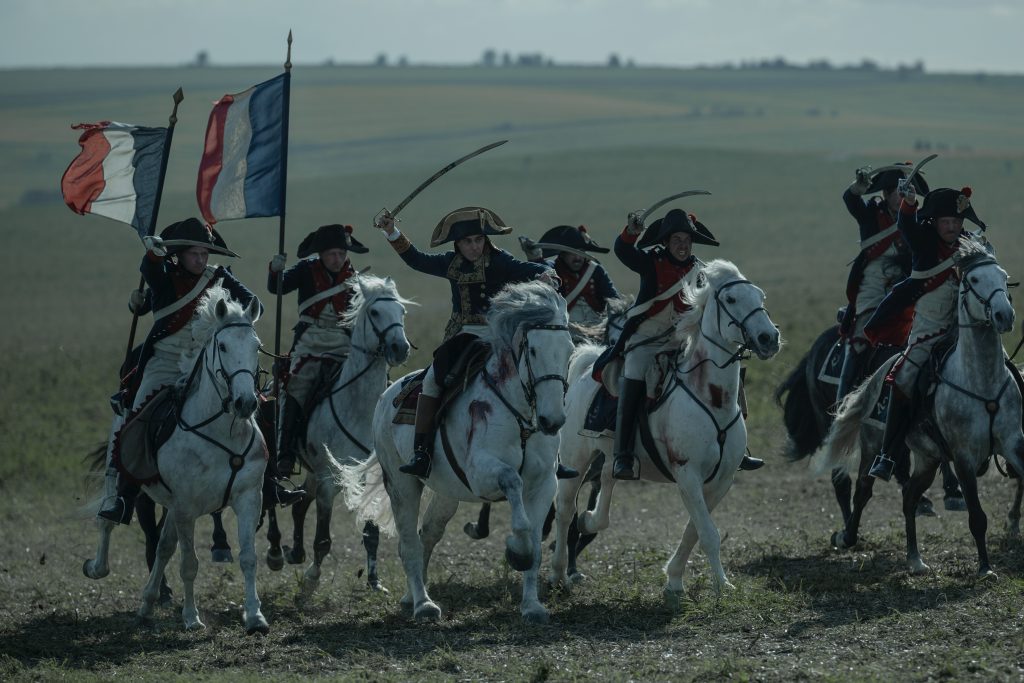
Scott is at his strongest when recreating battles. Yet, as impressive as some of these are (especially when seen on a big screen with a good sound system), they lack the depth and visceral immediacy of 1994’s Gettysburg, which featured combat using similar tactics and weaponry. The movie also elects to detail only six of Napoleon’s 81 battles, making it seem that he lost almost as often as he won.
The film’s lead character is a cold fish; Phoenix portrays him as aloof. His emotional outbursts are childish tantrums, and his genius is absent. His love for Josephine is unhealthy – a push/pull of sexual tension and misogyny – and he and Vanessa Kirby lack the requisite chemistry to make their scenes ignite. Napoleon would be intensely dislikeable if the character was played with more passion. It’s somewhat remarkable that Rupert Everett’s.
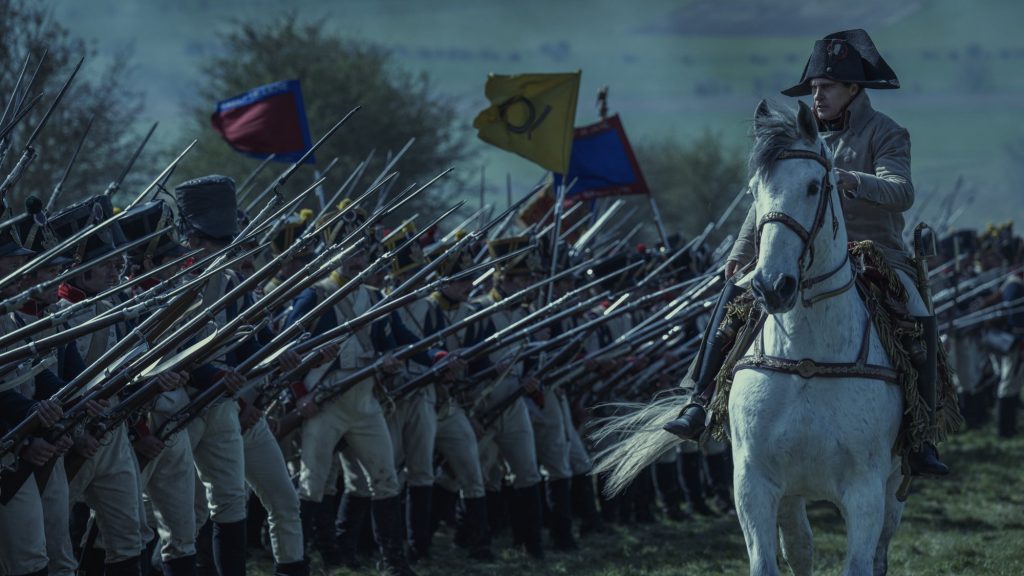
Duke of Wellington (the British general who defeated Napoleon at Waterloo) easily overshadows Napoleon despite being in only a handful of scenes.
One of the biggest problems with Napoleon is its inability to provide context for the various battles and domestic scenes. This is where the argument for a longer cut comes in. The 157-minute theatrical version plays like a highlight reel where a decade-long period is compressed into about 90 minutes in a seemingly haphazard fashion. Having a working knowledge of French history helps to anchor things; anyone without such a background may be confused as to why Napoleon was perceived as more than a petty dictator. Napoleon was, without a doubt, a complex and controversial character whose shadow loomed large over the first quarter of the 19th century. He deserves a better-focused, more passionate movie than the one Scott has provided.
Boluwatife Adesina is a media writer and the helmer of the Downtown Review page. He’s probably in a cinema near you.





